Introduction
The overseas experiential learning programme ”International Committee of the Red Cross (ICRC) Traineeship Project” was successfully launched in 2017-18. We are delighted to have its fifth-run. The selected student will broaden one’s horizons by working full time alongside the Economic Advisor in the ICRC headquarter in Geneva.
Background of ICRC
ICRC is a neutral and independent international humanitarian organisation whose mission is to assist victims of armed conflict and other violence, protect people’s dignity, and prevent suffering by promoting and strengthening international humanitarian law and humanitarian principles. The ICRC has been working closely with Red Cross and Red Crescent Partners to save as many lives as possible.
The partnership between HKU Business School and ICRC aims to provide students with the opportunity to gain working experience in an international humanitarian organisation, broaden one’s horizons, and explore possibilities in their lives.
Objectives of the Traineeship Project
Provide HKU Business School students with practical working experience in an international humanitarian organisation
Encourage more business actors operating in conflict-affected areas
Develop responsible business practices
Application
Interested students, please submit an online application here by the following deadline:
Application Deadline
12:00, 12 December 2022 (Monday)
In the application, applicants will be asked to fill in the application form and submit the following documents:
- Supporting documents for language proficiency (if any)
- Latest CV
- Motivation essay for the traineeship
*Please refer to the application form for detailed requirements for each document.
*You are reminded to avoid last-minute applications because the online system would likely be overloaded with a large volume of applications on the closing date. This would render you impossible to make a timely application.
Eligibility
Penultimate/final year undergraduate students or full-time taught postgraduate students
*All nationalities are welcome to apply. Selection will be subject to the final decision of ICRC.
Traineeship Duration
July 2023 – June 2024 (Selected candidate must be available to assume duties from July 1, 2023 until June 30, 2024)
*For further details regarding the Project, please refer to the attached fact sheet.
Refundable Deposit
Selected student is required to pay a deposit of HK$5,000 which will be refunded upon completion of the traineeship.
Enquiries
Please contact Mr. Patrick Lau at email: fbe.ugenrichment@hku.hk or phone: (852) 3917 5343.
Student Sharing
SO Yiu Hei, BBA(Law)&LLB Graduate, Class of 2023,
Trainee of ICRC in 2023-24
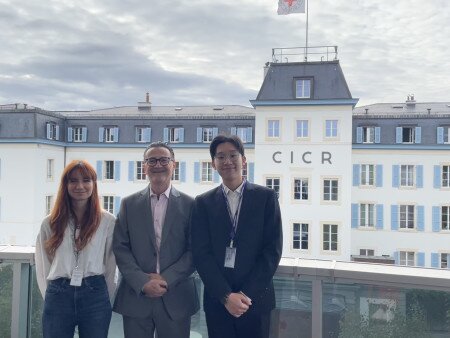 | I have had the honour of working at the ICRC, which has provided me with invaluable exposure to the inner workings of an international organisation. I am part of the Office of the Economic Advisor which influences companies operating in conflict-affected areas to adopt responsible business conduct that can help them navigate the intricate intersections of security, international humanitarian law, human rights, and business operations.
My traineeship with the ICRC has contributed significantly to my personal and professional development. Notably, frequent collaboration with esteemed international organisations such as DCAF and the United Nations has honed my ability to interface with high-level stakeholders in a multicultural context. The ICRC has also provided a multitude of training opportunities over and above those required for my line of work; and has supported my attendance at various international forums and external events. |
LUO Wenhao, BEcon&Fin, Year 4,
Former Trainee of ICRC in 2022-23
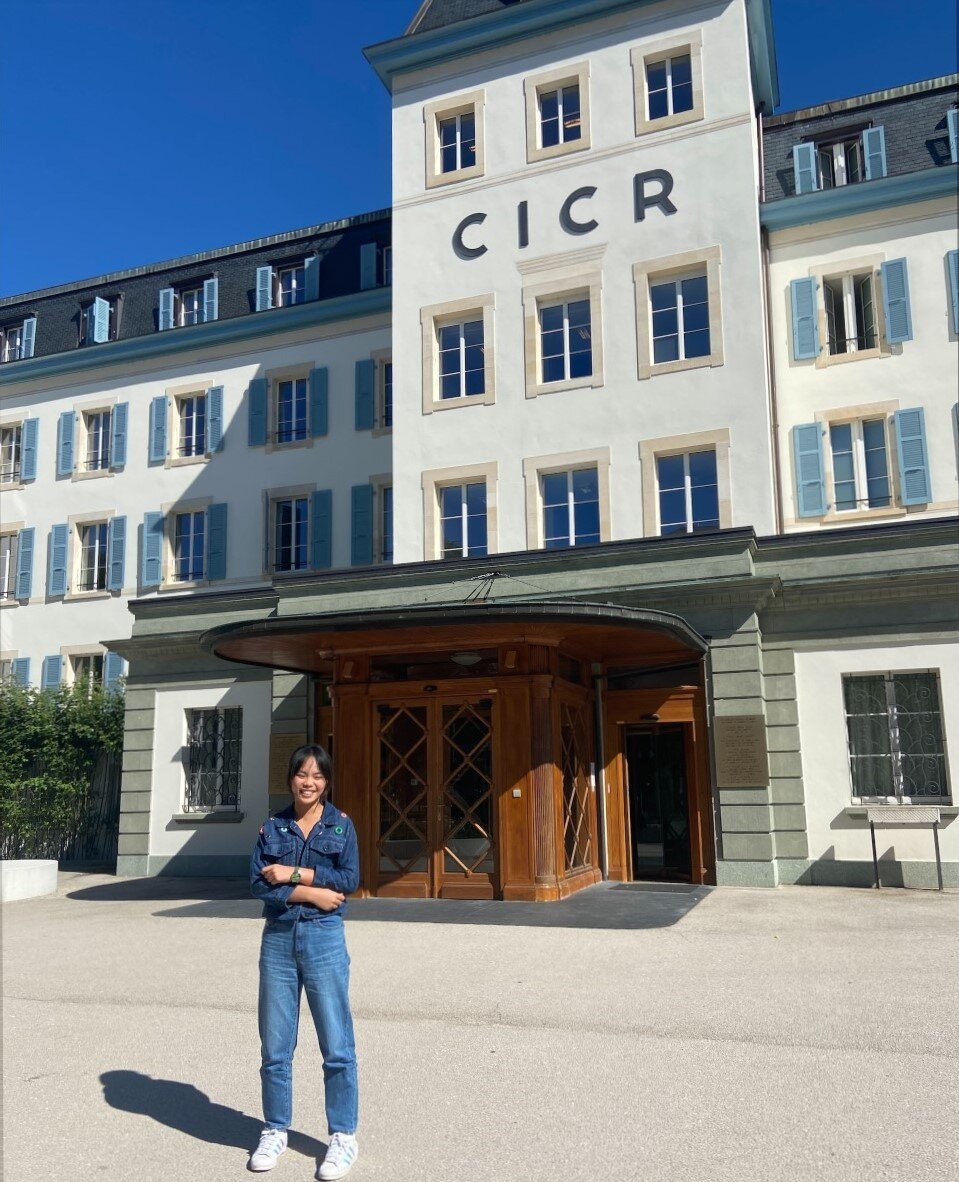 | The journey at ICRC has been full of surprises and rewards. My supervisor was very considerate and always keen on providing daily guidance and assistance for associates’ personal growth, while my colleagues were really supportive. I learned from them the true meaning of teamwork and earnest work for a cause I love. This experience also gave me an insight into the humanitarian field and ICRC's mandate and activities within it, which led to my deeper understanding of the value and dignity of human beings. I was filled with more energy than ever before as my life unfolded in Geneva. |
LIU Jingru, BBA(Law)&LLB, Year 5,
Former Trainee of ICRC in 2021-22
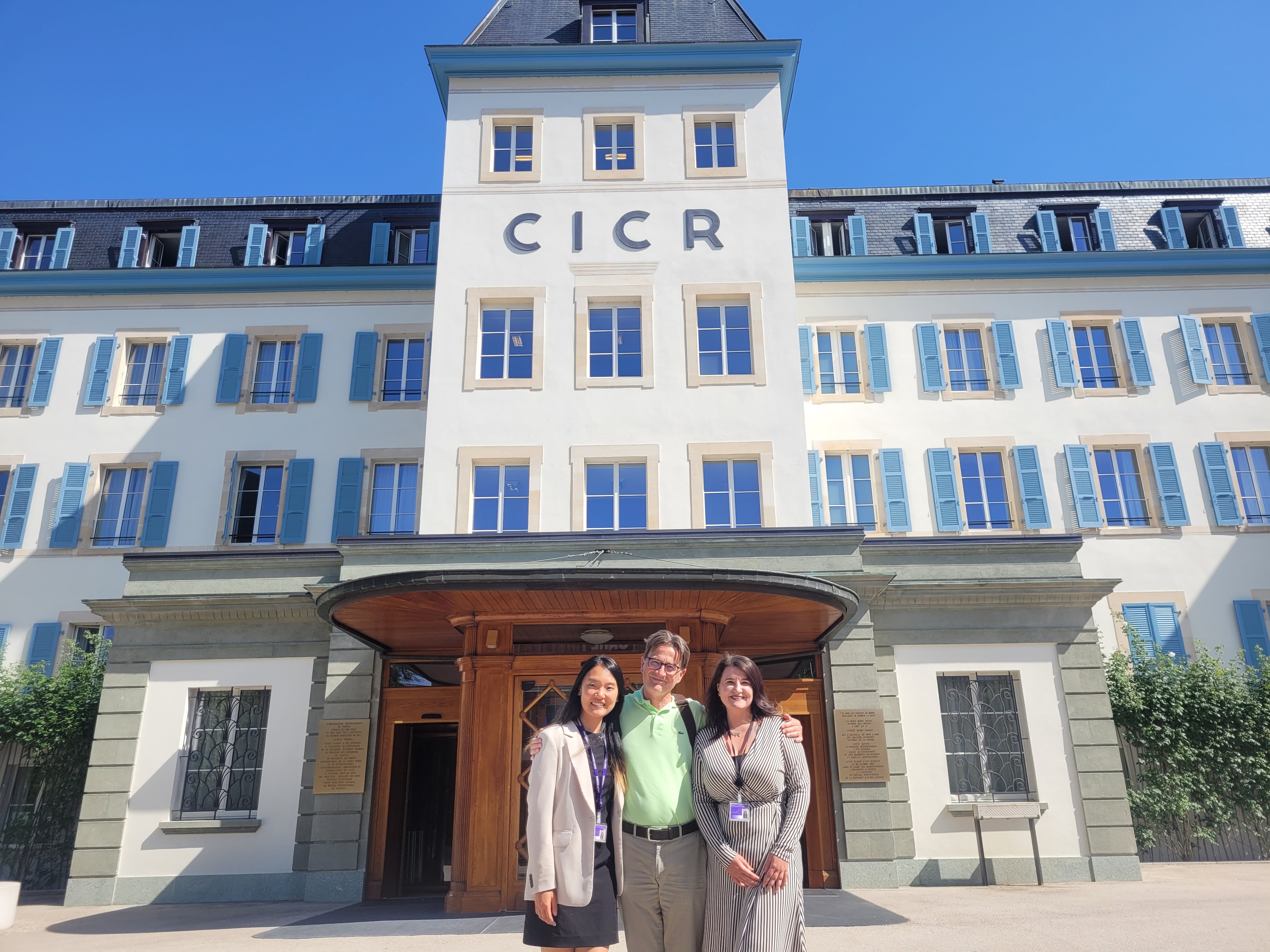 | My traineeship at the ICRC is an adventure that opened the doors to a world that was not accessible to me before. The ICRC with its unique mandate and authoritative status in the humanitarian field opens doors to many positions in the international relations, diplomacy, and politics field. Further, the strong culture at the ICRC to learn on the job and an emphasis on operational reality set itself apart from other similar organizations in Geneva. The real sufferings and issues often emerge quickly from the field and get directly translated into concrete plans and actions. |
WANG Supeng, BBA(A&F) Graduate, Class of 2020,
Former Trainee of ICRC in 2020-21
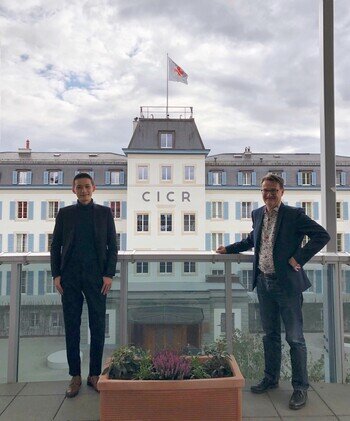 | The International Committee of the Red Cross has always been at the forefront of the humanitarian cause, and for me, it is both an honor and a reward to work here as a trainee to contribute to the prevention of conflicts. My supervisor is very concerned about the trainees’ career development and is never tired of giving professional advice and guidance in everyday work.
Also, by actively engaging with other colleagues from different cultural backgrounds, all enthusiastic about global issues, I can look into the many major challenges facing the world today with a more open mind. Finally, it is an unparalleled experience to live and work in Geneva, where many international organizations work together for the betterment of our shared future, and the COVID-19 pandemic only makes this more true and my journey more meaningful than it normally is.
Supeng's Story at ICRC: Here | ||
CHU Weng Lam, BBA(Law)&LLB Graduate, Class of 2019,
Former Trainee of ICRC in 2019-20
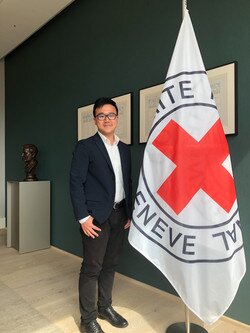 | The Red Cross symbol represents help, hope, and humanity. Working for the ICRC, the oldest international humanitarian organisation and a three-time recipient of the Nobel Peace Prize is more than just rewarding – it is a purpose-filled humanitarian journey. My ICRC experience has been enriching and fulfilling. With colleagues from all corners of the world, all dedicated to the humanitarian cause, I am very glad that as a member of the ICRC, I could contribute to the prevention and alleviation of conflict. | ||
XIAO Zhilin,BBA Graduate, Class of 2018,
Former Trainee of ICRC in 2018-19
| Four years of study in the Faculty equipped me with relevant knowledge and experience to work with the Economic Adviser for ICRC. My work is part of the bigger picture of ICRC’s engagement with the private sector. Nowadays, more and more multinational companies operate in a complex environment, including conflict-affected areas. And they are inevitably facing security and human rights challenges, which are very likely to impose a significant impact on the context they operate in. We work to sensitize businesses to humanitarian concerns and promote responsible business conduct by providing practical tools and guidance. Because of the multi-stakeholder nature of the job, I can work with other international organisations like DCAF, a foundation specialised in security sector reform; the World Economic Forum, the Davos in particular; and the United Nations on Business and Human Rights related files. I still remember the second week I joined the team, I was participating in the hearing of the Business and Human Rights nation plans in the United Nations Human Rights Council, sitting at the largest UN conference room that I used to see on TV, together with representatives from all different countries. Apart from the amazing exposure, thanks to the open and friendly atmosphere inside ICRC, I can easily schedule a coffee chat with colleagues from different departments and gain insights on various topics ranging from innovative finance to counter-terrorism.
Aside from daily work, as a trainee in ICRC, I am also eligible to take language classes at the United Nations. So I took the opportunity to learn French, as it’s also the second language in ICRC, and widely spoken in African countries. For me, learning does not just happen at work or inside the classroom, but also through our engagement with people. As the center for international organisations, Geneva as a city has over 50% expats. I met people from literally all over the world. I have colleagues in my office from Afghanistan, Ecuador, Kyrgyzstan…It is just amazing to see people from so different backgrounds, cultures, and languages, working together for the same cause – to make the world a better place. It sounds ideal, but it is what motivates me to wake up to work every day. I also realise that pursuing a business major in school does not only mean working in the banking or consulting industries; there are many other career choices out there, especially nowadays people with private sector knowledge and experience are more and more appreciated in the public sector.
| ||||
A story of love: The story of the ICRC



